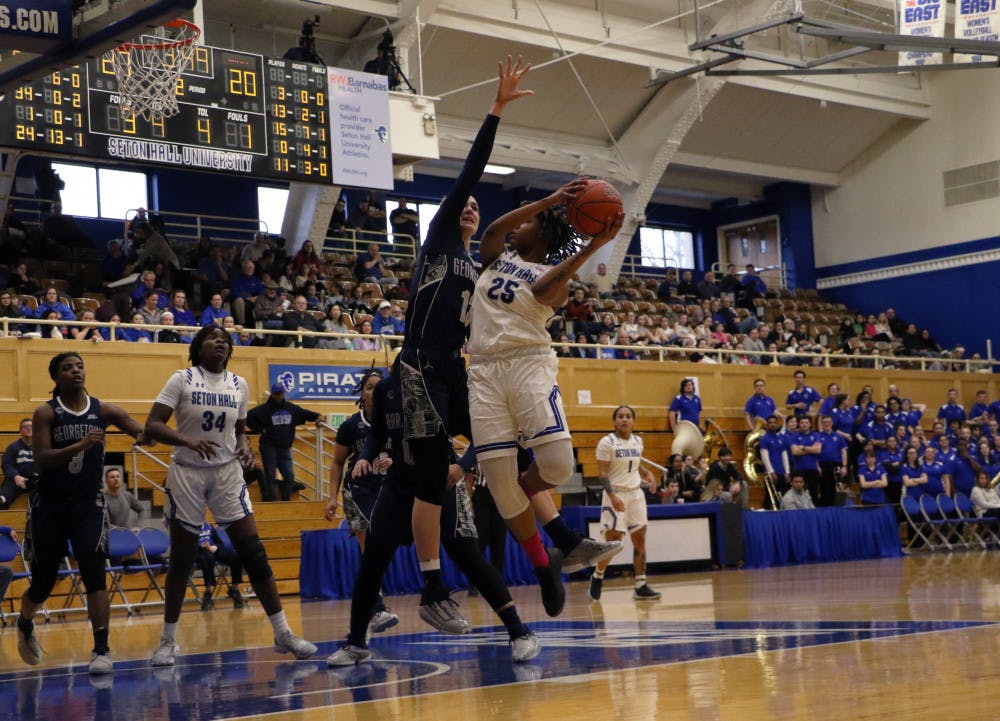Seton Hall's Academy for Urban School Reform recently teamed up with the Hall's Teaching Learning Technology Center to donate laptops to Newark's Dayton Street Elementary School, one of the lowest-performing schools in the state.
According to Linda Karten, the director of Marketing for Seton Hall, the laptop initiative was part of a larger program wherein the Academy works with the elementary school, as well as a few other schools, for three years, to help improve its performance.
Karten said that Dayton, which is performing academically in the lowest 5 percent of schools in the state, received a federally, state and district funded grant, a school improvement grant.
"SIG gives money to the poorest academically performing schools in the sate, but (the schools) have to use the money for professional development, to help teachers become more effective in the classroom," Karten said.
Karten added that Seton Hall's Academy for Urban School Reform, along with many other national and state-wide third-party programs, applied to help the Dayton Avenue Elementary School utilize the grant with professional development training, courses and mentoring.
Dr. Charles Mitchel, associate professor and the associate dean for the department of educational leadership management and policy, created the Academy for Urban School Reform at Seton Hall about four years ago.
Mitchel said he had always felt a connection to the urban school districts; after attending Seton Hall as a student on a basketball scholarship, he became a teacher and, later, principal in a Newark school.
"When I graduated I took a bus down South Orange Avenue and became a teacher in Newark, never thinking I was going to work at Seton Hall," Mitchel said.
According to Mitchel, Seton Hall has a history of working closely with the neighboring urban districts, like those in Newark, and he said this commitment to working with those types of schools was probably what stood out most in the Academy's application to work with the Dayton Avenue School.
"Unlike a lot of other groups, we do what we call job embedded professional development and follow-up instructional coaching," Mitchel said. This means that each teacher at the elementary school was matched with a member of the Academy, (comprised of professors, faculty and administration in the School of Education and Human Services at Seton Hall,) Mitchel said.
He added that the Academy member had to spend a minimum of two hours a week at the Dayton Avenue School in order to get a better sense of the teacher's strong points and points that could be improved. Additionally, members of the academy sat in on grade meetings and helped with lesson plan, as opposed to "doing a workshop and then leaving," Mitchel said.
"The ultimate goal is to raise student achievment by raising the teaching capacity of the teachers," Karten said. "Sometimes a teaching environment can be kind of isolating, and this program will help to give the teachers good, quality feedback."
"The absolute fundamental goal is that we build the capacity of each teacher, with the leadership in the school, so they can provide meaningful instruction so every student can reach his or her potential, and to make annual yearly progress on state exams," Mitchel said, explaining that annual yearly progress means to make significant overall gains in test scores throughout the school on a yearly basis.
Mitchel said the idea for the laptops came when the Academy noticed the lack of access to technology for the teachers and students in the school. Mitchel said the Academy worked with the TLTC to give 50 laptops to the teachers at Dayton Avenue and 20 additional laptops for a rolling laptop cart for students to use in order to "expand the boundaries of learning for the kids," Mitchel said.
If a class was learning about Brazil, for example, the laptops could be used to Skype with a school in Brazil, Mitchel said, adding he thinks the laptops should be used to teach in new ways, rather than just using the laptops for things teachers can already do with traditional teaching methods.
"We're using a traditional, research-based, method," to get the best results and outcome for the teachers and students, Mitchel said. He added that the TLTC will also provide training sessions on effectively using laptops in the classroom for the teachers over the summer.
The Academy will continue to work with the Dayton Avenue Elementary School in Newark for the next two years.
Caitlin Carroll can be reached at caitlin.carroll@student.shu.edu





